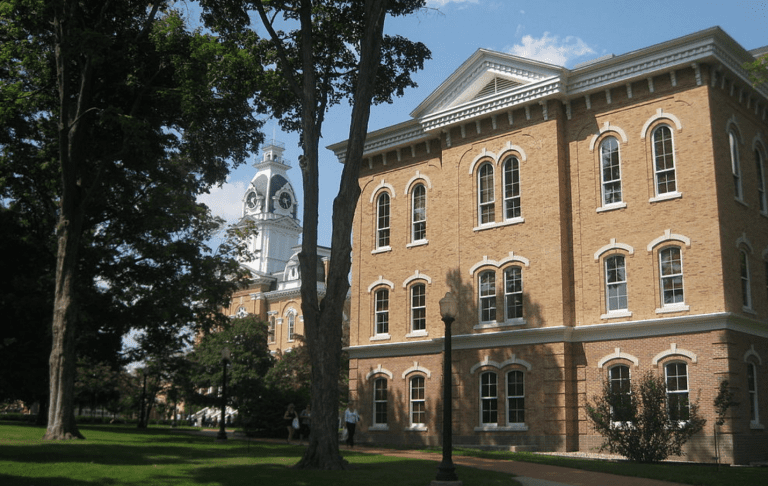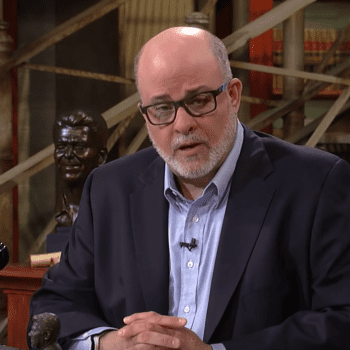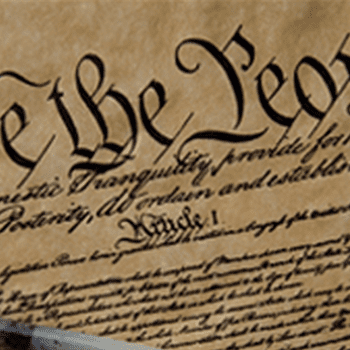
The size and scope of the federal government has far exceeded what the Founders intended.
Crazy. I know.
“We the People” have witnessed the intense proliferation of the federal government. The problems of constant budget deficits, over-regulation, cancerous bureaucracy, and idle politicians require a solution that has never been successfully used before. We need a revolution to recommit ourselves to federalism. There exists only one solution big enough to solve the problem: calling an Article V Convention of the States.
Article V delineates the two methods of proposing amendments. Only Congress has proposed amendments to the Constitution in the past. The second way to propose amendments, however, is the game-changer for returning power back to the states and the people.
When the Constitution was being written, Col. George Mason spearheaded an effort to ensure a safeguard for state powers in case the federal government ever radically and consistently overstepped its bounds. This effort gave rise to the second manner in which amendments are proposed: “On the application of the legislatures of two thirds of the several states,” Congress “shall call a convention for proposing amendments.” Herein lies the solution to the federal government Goliath.
The process is simple. First, two-thirds of the states (34/50) must pass resolutions or applications with identical operative language requesting that Congress calls a Convention of the States for the purpose of proposing amendments to the Constitution under certain constraints. Historical precedent allows one state-one vote at the convention, to prevent control by large states. States can send as many or as few commissioners, but every state is equal at an Article V Convention of the States.
Commissioners can write and discuss proposals within the constraints written in the applications. To propose an amendment for ratification, a simple majority vote is required. Congress then decides if the amendments will be ratified by three-fourths (38/50) of the states by state legislatures or by state conventions.
This reclamation of power requires a unified, national movement. Citizens for Self-Governance, led by President Mark Meckler, is leading the charge in the nation with the Convention of States Project. The project is a national movement seeking to remedy our broken structure of government by grassroots lobbying in each state for an Article V Convention of the States. Since the COS Project was launched in late August 2013, twelve states have passed the identical resolution requesting a convention to propose amendments that “impose fiscal restraints on the federal government, limit the power and jurisdiction of the federal government, and limit the terms of office for its officials and for members of Congress.”
I suspect there may be a few objections, but allow me to put to rest any myths that the “anti-constitutional” crowd likes to throw around.
First and foremost, this is not a “Constitutional Convention”. The Constitutional Convention of 1787 was an act of the states initiated by Virginia. The states called the conventions and Congress was merely notified out of respect. It was not a “runaway convention” under Article XIII of the Articles of Confederation because it was not called under that document. This is the premier opposition point used as a fear-mongering tactic directed at state legislators.
This new Convention of the States seeks to be called under the authority of the Constitution. It cannot throw away the Constitution or amend it outside of the areas listed in the state applications according to Supreme Court rulings and the precedent of past interstate conventions.
Now, even though this future convention could not become a runaway convention, let us say for argument’s sake that it does. You would still need 38 states to ratify any amendments proposed. Do you really think that there are not 13 states in the Union that would deny ratification of amendments that would subvert the Constitution? Do you really think that say, a repeal of the 2nd Amendment or the 1st Amendment, would be approved by 38 of the 50 states?
Second, “electing good people” to office is no longer effective. Since 2010, radical turnover has happened in the House of Representatives, Senate and the Executive Branch but absolutely nothing has changed. We need to continue to elect liberty-minded public servants to state and federal offices; but that is not enough.
Former Senator Jim DeMint, R-South Carolina, explained to me that he worked to elect ten “good conservatives” at the Senate Conservatives Fund, but in the end the swamp swallowed eight of them.
Everyday, the federal courts grow more powerful and biased, while elected representatives neuter themselves and pass difficult decisions to either the courts or the unelected bureaucrats who labor to consolidate their power. If that is not enough, a Republican-controlled Congress, Senate and President just passed a $1.3 trillion omnibus spending bill.
The Founders constructed the Constitution the best way they could to restrain power-seeking tendencies. The problem is ultimately not the people in office. Corrupt people over time have broken the structure of government. Every election cycle, men and women are elected to serve in Washington, D.C., and we fall for the same, old “meritocracy” shtick.
Washington has failed time and time again to reduce the federal government, even with the clear mandate the people sent to the Republican Party this previous election cycle. This quid pro quo of promised government shrinkage for votes is a charade that we can defeat by using our final check for self-governance found in Article V.
Third, from history we know that constitutional amendments work — the Constitution has been amended seventeen times since the Bill of Rights, including the ratification and subsequent repeal of the Prohibition Amendment. The United States has adopted amendments for four reasons: to correct drafting errors, to resolve constitutional disputes, to respond to changing conditions, and to correct and forestall government abuse. Amendments are effectual and powerful expressions of the national will. The civil society and federal government do obey constitutional amendments They have worked and will work.
The new Citizens for Self-Governance Club at Hillsdale is working to promote the Article V solution and empower students to be a part of history. My co-president, Lucy Meckler, and I seek to promote the principles of self-governance not just in education, but in action. The club has already brought DeMint, the former president of The Heritage Foundation. We offer opportunities for internships in lobbying and the local legislative process. Come to our weekly meetings in the Formal Lounge, Thursdays at 6 p.m. If you are ready to be part of the solution, we invite you to join our revolution.
Thomas Jefferson said, “Every generation needs a new revolution.”
This is ours.
Click here to read more from the Hillsdale Collegian.
The above article was written by Weston Boardman, a sophomore studying economics at Hillsdale College. Boardman is the co-president of Hillsdale’s chapter of Students for Self-Governance.
Image Credit: By Brother Atticus [CC BY-SA 3.0 (https://creativecommons.org/licenses/by-sa/3.0) or GFDL (http://www.gnu.org/copyleft/fdl.html)], from Wikimedia Commons










